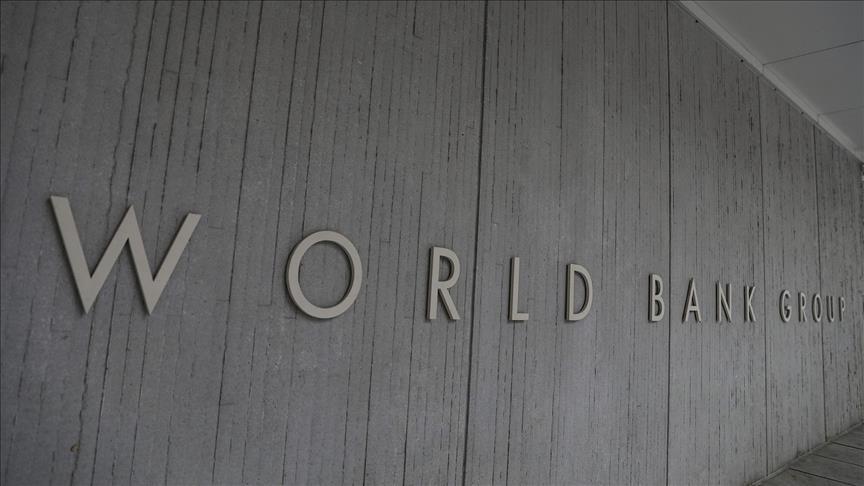Africa-Press – Mozambique. The World Bank has slashed its global growth forecast, warning that the world economy remains hobbled by deepening fragilities and a steady erosion of investment and productivity.
“When we look at the global economy, there are very serious vulnerabilities. These vulnerabilities will continue in some form in the coming period,” Ayhan Kose, deputy chief economist at the World Bank Group, told Anadolu.
“Policy uncertainty has reached its highest level ever. There is a very serious increase in geopolitical tension.”
With shaky short-term prospects for price stability, debt issues and fiscal discipline, the bank revised its economic growth forecast for 2025 from 2.7% to 2.3%. It also stressed the need for long-term structural reforms.
“In the long term, especially when we look at what has happened in this century, there has been a downward trend in growth over the past 25 years,” Kose said.
In the early 2000s, global growth averaged 5%, with particular strength in developing economies. By 2010, that dropped to 4%, and today it is down to 3.5%, he continued.
Kose said that weakening investment and slower population growth are among the structural problems driving this trend.
“As a result of all this, we are not achieving the desired results in productivity, and the decline in productivity is leading to lower growth rates,” he said.
Appetite for reform is fading
Kose noted a “significant decline” in both foreign and domestic investment, particularly in developing countries.
He attributed the drop to both global and domestic factors, including persistent trade tensions, rising geopolitical risks, and unprecedented levels of policy uncertainty.
While stressing the importance of policy action to sustain growth, Kose said the political momentum for reform has waned since the early 2000s.
“In many countries, the appetite for reform has significantly decreased,” he said. “Reforms are very important because, in order for foreign capital to come to a country or for private capital to significantly increase its investments, the business environment needs to be strengthened.”
Critical reforms include strengthening institutions and establishing sound fiscal policies and price controls, he added.
Rising tensions, shifting alliances
Referring to escalating trade tensions, Kose said major powers such as the US and China remain locked in intense competition, one that shows little sign of easing in the near term.
However, many developing and advanced economies are also actively looking for new ways to expand markets and attract investment, he said.
“On the one hand, the tension between the major countries is certainly casting a serious shadow over world trade,” he said.
“But at the same time, it is forcing other countries to engage in trade agreements more actively.”
Inflation easing, but risks remain
Kose said the expected decline in global inflation is likely to be delayed this year, though he believes inflation will ease more noticeably in 2026.
He pointed to “stubbornness” in service sector inflation, especially in developed countries, but maintained that the overall downward trend will continue despite the delay.
He called on central banks to take a more proactive stance to meet inflation targets and communicate their policies clearly to anchor public expectations.
Preventing inflation expectations from drifting off target is crucial, he added.
He also warned that rising tensions in the Middle East could exert renewed upward pressure on global energy prices.
“We need to see how long the tension will last, how it will affect oil reserves and production, especially in the Middle East, and how this will be reflected in global prices,” he said. “When we see these things, we can understand the inflation picture much better.”
Cautious optimism
Asked whether he was hopeful about the global economy’s outlook, Kose said, “Of course, we need to be hopeful and optimistic. If we are not optimistic, we need to give up what we are doing. However, that optimism must also be cautious.”
He pointed again to high levels of uncertainty, driven by policy volatility and rising geopolitical tensions.
“We are also going through a period in which more protectionist policies are emerging,” he added.
Over the past five years, the global economy has endured a series of unprecedented “massive” shocks, including the COVID-19 pandemic, severe supply chain disruptions, surging inflation, the war in Ukraine, and now instability in the Middle East, Kose said.
“So far, there has been significant resilience, and we hope this resilience will continue,” he said.
But with growth forecasts weakening, he stressed the need for governments to implement serious and credible economic policies, for both the short and medium term.
“When that happens, we will become more hopeful,” Kose added.
For More News And Analysis About Mozambique Follow Africa-Press






